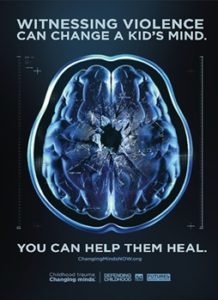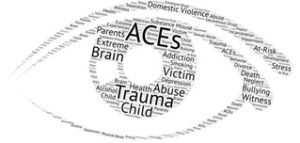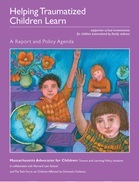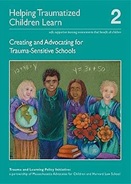District Attorney Cruz is strongly committed to working with community partners and law enforcement agencies to assist children victims and witnesses of crime.
The Childhood Trauma Initiative is focused on working with law enforcement, educators, youth serving agencies, hospitals, and other community partners to help children build the necessary resiliency skills for a healthy development.
The goals of the Childhood Trauma Initiative are to:
- Educate law enforcement, criminal justice departments, educators, youth serving agencies, and other community partners on Adverse Childhood Experiences (ACEs) and how exposure to ACEs impairs the neurological, social, behavioral, and emotional development of youth
- Facilitate collaboration and communication between law enforcement, school departments, and after school programs in order to share information regarding children exposed to ACEs
- Train law enforcement on trauma-sensitive police approaches to working with children who are victims/witnesses to crime
- Train providers on creating trauma-sensitive schools and after-school programs
- Train providers on targeted intervention programs for youth at-risk for future antisocial behavior (addiction, violence, bullying, etc)
Report Abuse
 In Plymouth County alone, over 500 children each year allege abuse.
In Plymouth County alone, over 500 children each year allege abuse.
Each case must be investigated to ensure the child is safe from further harm. Child abuse can impact a child’s physical and mental well-being.
Emotionally, children can experience withdrawal, post-traumatic stress disorder, and feelings of shame, distrust, and guilt.
If you suspect any case involving child sexual or physical abuse, neglect, or sexual exploitation, report it immediately.
History of the Childhood Trauma Initiative
The District Attorney’s Office and the Trauma and Learning Policy Initiative (TLPI)opens in a new window
first implemented the Helping Traumatized Children Learn Model in Plymouth County as a pilot program in the Brockton Public Schools in 2007.
The goal was two-fold:
-
- treat the victims and witnesses of such violence, but also by treating their exposure to adverse childhood experiences
- prevent the next generation of abusers.
Data from 2011-2014 showed an 80% decrease in suspendable
issues and a 43% decrease in overall office referrals at the three pilot schools.
TLPI and the DA’s Office believe that similar decreases will
be seen in substance abuse and other anti-social behavior,
because the Helping Traumatized Children Learn Model addresses all health detriments, and keys in on helping students develop proper self-regulation techniques.
TLPI has distributed over 95,000 copies of the Helping Traumatized Children Learn book since its publication in 2005. The success of the initiative led to a second volume, Creating and Advocating for Trauma-Sensitive Schools in 2013.
To learn more about the District Attorney’s work with the Trauma and Learning Policy Initiative, please view: Behind Broken Doors, Schools work to aid children of domestic violenceopens in a new window
Now in the midst of an opioid crisis, District Attorney Cruz is applying the same principles to work with drug endangered children.
DA Cruz presented this model at the CADCA 27th National Leadership Forum in February 2017 and the National Alliance for Drug Endangered Children Conference in October 2016. DA Cruz has also trained the
West Virginia Center for Children’s Justice and their Handle with Care Program.
Resources
Download: Helping Traumatized Children Learnopens in a new window


Learn more about ACEs:
ACEs Primer Videoopens in a new window
How Childhood Trauma Affects Health Across a Lifetimeopens in a new window
About CDC-Kaiser ACE Studyopens in a new window
ACEs Science 101opens in a new window
Witnessing Violence Can Change a Kid’s Mindopens in a new window
Why We Need Trauma-Sensitive Schools
